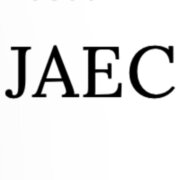Best Technology Transactions Lawyers in Luxembourg
Share your needs with us, get contacted by law firms.
Free. Takes 2 min.
Or refine your search by selecting a city:
List of the best lawyers in Luxembourg
About Technology Transactions Law in Luxembourg
Technology Transactions in Luxembourg involve the legal aspects of agreements and contracts related to technology, such as software development, licensing, data protection, and intellectual property rights. These transactions require a deep understanding of both technology and legal frameworks to ensure compliance with regulations and protect parties' rights.
Why You May Need a Lawyer
You may need a lawyer specializing in Technology Transactions in Luxembourg if you are involved in negotiating or drafting technology-related contracts, handling data protection issues, or addressing intellectual property rights disputes. A lawyer can provide legal guidance, ensure compliance with local laws, protect your interests, and help resolve any conflicts that may arise.
Local Laws Overview
In Luxembourg, key aspects of laws relevant to Technology Transactions include data protection regulations under the General Data Protection Regulation (GDPR), intellectual property rights laws, contract law, and consumer protection laws. Understanding these laws is crucial to navigating Technology Transactions successfully and avoiding legal pitfalls.
Frequently Asked Questions
1. What is the role of data protection laws in Technology Transactions?
Data protection laws in Luxembourg, as governed by the GDPR, play a crucial role in regulating the handling of personal data in Technology Transactions. Compliance with these laws is essential to protect individuals' privacy rights and avoid penalties for non-compliance.
2. How can I protect my intellectual property rights in Technology Transactions?
To protect your intellectual property rights in Technology Transactions, you need to clearly define ownership rights, confidentiality obligations, and licensing terms in contracts. Working with a lawyer can help you draft agreements that safeguard your intellectual property.
3. What are the common pitfalls to avoid in Technology Transactions?
Common pitfalls in Technology Transactions include inadequate data protection measures, ambiguous contract terms, and insufficient intellectual property protection. Seeking legal advice can help you anticipate and avoid these pitfalls.
4. How can I ensure compliance with local laws in Technology Transactions?
Ensuring compliance with local laws in Luxembourg requires a thorough understanding of data protection regulations, intellectual property laws, and contract law. A lawyer with expertise in Technology Transactions can help you navigate these legal requirements.
5. What should I consider when negotiating technology-related contracts?
When negotiating technology-related contracts, consider factors such as project specifications, delivery timelines, payment terms, intellectual property rights, data protection obligations, and dispute resolution mechanisms. A lawyer can help you negotiate favorable terms and protect your interests.
6. How can I resolve disputes related to Technology Transactions?
Disputes related to Technology Transactions can be resolved through negotiation, mediation, arbitration, or litigation. A lawyer can assess your situation, advise you on the best course of action, and represent your interests in dispute resolution proceedings.
7. What are the consequences of non-compliance with data protection laws in Technology Transactions?
Non-compliance with data protection laws in Technology Transactions can result in fines, legal actions, reputational damage, and loss of trust with customers. It is essential to take data protection regulations seriously and implement appropriate compliance measures.
8. How can I ensure the confidentiality of sensitive information in Technology Transactions?
To ensure the confidentiality of sensitive information in Technology Transactions, include confidentiality clauses in contracts, limit access to confidential data, implement security measures, and monitor compliance with confidentiality obligations. A lawyer can help you establish robust confidentiality protections.
9. What are the key differences between licensing and ownership of technology in contracts?
Licensing involves granting permission to use technology under specified conditions, while ownership grants exclusive rights to control and exploit technology. Understanding the distinctions between licensing and ownership is crucial when negotiating technology-related contracts to avoid misunderstandings and disputes.
10. How can I stay updated on legal developments in Technology Transactions in Luxembourg?
To stay informed about legal developments in Technology Transactions in Luxembourg, follow updates from regulatory authorities, attend industry events, consult legal publications, and engage with legal professionals specializing in technology law. Keeping abreast of legal changes is essential to ensure compliance and make informed decisions.
Additional Resources
For additional resources related to Technology Transactions in Luxembourg, consider consulting the Luxembourg Data Protection Authority (CNPD), the Intellectual Property Office (DPI), legal publications such as Lexology and the International Association of Privacy Professionals (IAPP). These resources can provide valuable insights and guidance on legal matters related to Technology Transactions.
Next Steps
If you require legal assistance in Technology Transactions in Luxembourg, contact a specialized technology law firm or a lawyer with expertise in data protection, intellectual property rights, and contract law. Schedule a consultation to discuss your specific needs, understand your legal options, and ensure compliance with local laws to protect your interests in Technology Transactions.
Lawzana helps you find the best lawyers and law firms in Luxembourg through a curated and pre-screened list of qualified legal professionals. Our platform offers rankings and detailed profiles of attorneys and law firms, allowing you to compare based on practice areas, including Technology Transactions, experience, and client feedback.
Each profile includes a description of the firm's areas of practice, client reviews, team members and partners, year of establishment, spoken languages, office locations, contact information, social media presence, and any published articles or resources. Most firms on our platform speak English and are experienced in both local and international legal matters.
Get a quote from top-rated law firms in Luxembourg — quickly, securely, and without unnecessary hassle.
Disclaimer:
The information provided on this page is for general informational purposes only and does not constitute legal advice. While we strive to ensure the accuracy and relevance of the content, legal information may change over time, and interpretations of the law can vary. You should always consult with a qualified legal professional for advice specific to your situation.
We disclaim all liability for actions taken or not taken based on the content of this page. If you believe any information is incorrect or outdated, please contact us, and we will review and update it where appropriate.
Browse technology transactions law firms by city in Luxembourg
Refine your search by selecting a city.














